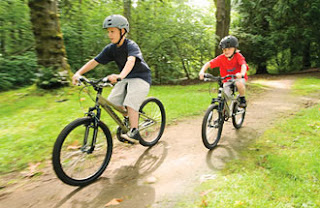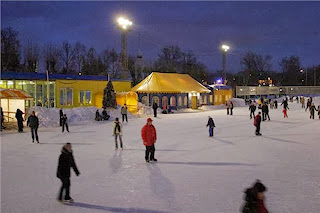1.C5. Imagine that these are photos from your album. Choose one photo to present to your friend. You will have to start speaking in 1.5 minutes and will speak for not more than2 minutes(12-15 sentences). In your talk remember to speak about :
* where and when the photo was taken
*what\who is in the photo
*what is happening
*why you keep the photo in your album
*why you decided to show the picture to your friend
Card № 2. Card № 2.
2.C4. You are going to study abroad for three months and want to find a swimming pool you could attend.You are calling to make some clarifications.In 1.5 minutes you are to ask five direct questions to find out about the following :
1).location of the swimming pool
2).opening hours
3).sauna availability
4).price for 3 months
5).discounts for students
Card № 3. EXAM TASKS (SPEAKING :DESCRIBING PHOTOS )
1.C5. Imagine that these are photos from your album.Choose one photo to present to your friend. You will have to start speaking in 1.5 minutes and will speak for not more than 2 minutes( 12-15 sentences).In your talk remember to speak about:
* where and when the photo was taken
*what\who is in the photo
*what is happening
*why you keep the photo in your album
*why you decided to show the picture to your friend
1.C5. Imagine that you are showing your photo album to your friend.Choose one photo to present to your friend.You have one minute to think it over.
When presenting the picture remember to mention:
* where and when the photo was taken
*what\who is in the photo
*what is happening
*why you keep the photo in your album
*why you decided to show the picture to your friend
Card № 5. C6.Study the two photographs.In 1.5 minutes be ready to compare and contrast the photographs:
1).give a brief description of the photos
2).say what the pictures have in common
3).say in what way the pictures are different
4).say which kind of spending free time you`d prefer/ say which of the activities presented in the pictures you'd prefer
5).explain why
Card № 6.C5. Imagine that you are showing your photo album to your friend.Choose one photo to present to your friend.You have one minute to think it over.
When presenting the picture remember to mention:
* where and when the photo was taken
*what\who is in the photo
*what is happening
*why you keep the photo in your album
*why you decided to show the picture to your friend
When presenting the picture remember to mention:
* where and when the photo was taken
*what\who is in the photo
*what is happening
*why you keep the photo in your album
*why you decided to show the picture to your friend
Card№8.C6.Study the two photographs.In a minute be ready to compare and contrast the photographs:
1).give a brief description (action, location)
2).say what the pictures have in common
3).say in what way the pictures are different
4).say which kind of sport you`d prefer
5).explain why
1).give a brief description (action, location)
2).say what the pictures have in common
3).say in what way the pictures are different
4).say which kind of sleeping you`d prefer
5).explain why
1).give a brief description (action, location)
2).say what the pictures have in common
3).say in what way the pictures are different
4).say which you`d prefer : to win or to lose playing sport
5).explain why
When presenting the picture remember to mention:
* where and when the photo was taken
*what\who is in the photo
*what is happening
*why you keep the photo in your album
*why you decided to show the picture to your friend
Card№12.C6.Study the two photographs.In a minute be ready to compare and contrast the photographs:
1).give a brief description (action, location)
2).say what the pictures have in common
3).say in what way the pictures are different
4).say which kind of life you`d prefer
5).explain why
Card№13.C6.Study the two photographs.In a minute be ready to compare and contrast the photographs:
1).give a brief description (action, location)
2).say what the pictures have in common
3).say in what way the pictures are different
4).say which kind of life you`d prefer for wild animals
5).explain why
As soon as spring brings a new growth of bushes and berries,bears start feeding. They eat and eat.
All through the spring and summer their feeding goes on. The bears build themselves up. They store food and fats that they will need in the fall when they start their long sleep.
As days grow shorter, and the temperature begins to fall, bears hunt for a sleeping place. It may be a shallow cave, or a deep crack between rocks. Some bears end up sleeping in hollow logs. Logs seem to be bears' fovorite places. Bears seem to choose small spaces. They can keep warmer in a cave that's just large enough to hold them than in a larger cave. They often line their sleeping place with leaves and dried grass.
All through their winter naps, bears will not eat. Often they will sleep for 7 months, moving only now and then.
Card№15.C3
Many lands that had once been swamps were drained or filled in. There are different reasons why people drained swamp lands. Some were drained to fight diseases caused by insects that lived in them. Because swamps were considered unpleasant places in which to live and harmful to health, many people thought that unless they were drained the land was worthless.
Other swamps were drained to make new land. As the population grew and more land was needed, people drained swamps or filled them to make room for more farms and factories, more roads and airports.
Few people thought that it might be harmful to get rid of swamps. As swamps disappeared, other things happened. There were both more floods and more droughts than before. There were also more fires, for swamps had acted as fire breaks. Hunters noticed that there was less wild game. Wild life that once lived in the swamps was dying out, because it had no place to live.
Card№16.C3
Because birds have such fine eyesight, they are hard to approach. Bird watchers use binoculars to study birds. One way to watch them up close without useing binoculars is to go to a place they go to often. Sit still, keep quiet, and wait until they come. Soon they will be doing things all around you. You may get too close to the animals you are watching. Always stay at a distance that is easy for them and for you. Do not disturb nesting birds. And never approach an animal that is with its young. Wild animal parents can be very protective. If you come upon a baby animal that looks like it`s alone, let it be. Mother may be watching you from a hiding place nearby.
Do not touch or corner a wild animal. Never follow an animal into places you don`t know. There is no such thing as a tame wild animal.
Card№17.C3
Stone Age existence depended on killing animals - for food, clothing, and even weapons and tools. The animals were large and fierce; the cave people had only the most simple weapons. Hunters had to be brave and fearless. They needed more than a spear or club; they needed all the magic they could get. The magic could help the hunters catch the animals.
Like everywhere
else, people in English-speaking countries enjoy different festivals and
celebrations in each of the four seasons. Food, family and flowers are an
important part of most celebrations. Most people like to have a family dinner
on such days. A lot of people give chocolate and other sweets as presents, and
some festivals have their special food. Restaurants and cafés are usually very
busy on these days. As for flower shops, they sell a lot of flowers. People
today often live far away from their families, so they send greeting cards at
special times like Christmas, or Mother’s Day, or Easter. Post offices and
telephones are very busy too. Of course, times change, and festivals also
change. But people have celebrated many of these festivals for hundreds of
years and will still enjoy them in many years.
Card № 18.C5. Imagine that you are showing your photo album to your friend.Choose one photo to present to your friend.You have one minute to think it over.
When presenting the picture remember to mention:
* where and when the photo was taken
*what\who is in the photo
*what is happening
*why you keep the photo in your album
*why you decided to show the picture to your friend
1).give a brief description (action, location)
2).say what the pictures have in common
3).say in what way the pictures are different
4).say which of the hobbies presented in the picture you'd prefer
5).explain why
1).give a brief description (action, location)
2).say what the pictures have in common
3).say in what way the pictures are different
4).say which of the activities presented in the picture you'd prefer
5).explain why
Card№21.C6.Study the two photographs.In a minute be ready to compare and contrast the photographs:
1).give a brief description (action, location)
2).say what the pictures have in common
3).say in what way the pictures are different
4).say which of the activities presented in the picture you'd prefer
5).explain why
Card № 22.C5. Imagine that you are showing your photo album to your friend.Choose one photo to present to your friend.You have one minute to think it over.
When presenting the picture remember to mention:
* where and when the photo was taken
*what\who is in the photo
*what is happening
*why you keep the photo in your album
*why you decided to show the picture to your friend
Card № 23
You are considering going on this sightseeing tour and now you'd like to get more information.
In 1.5minutes you are to ask five direct questions to find out about the following:
1. duration of the tour
2.the starting point
3.number of tourist attractions you'll visit
4.the price for one person
5.English-speaking guide
You have 20 seconds to ask each questions
( to join the green movement )
1. minimum age
2. amount of work to do
3.if special clothes are provided
4. a number of people in a team
5.office location
( night club )
1. entrance fee
2. if karaoke is available
3.club location
4.discounts for students
5.styles of music played
Task 2.
Study
the advertisement. You are considering attending the driving school and now
you’d like to get more information. In 1.5 minutes you are to ask five direct
questions to find out about the following: 1) location; 2) morning classes; 3)
minimum age for students; 4) tuition fee; 5) types of cars used.


































.jpg)
.jpg)
.jpg)
.jpg)
.jpg)
.jpg)
.jpg)
.jpg)
